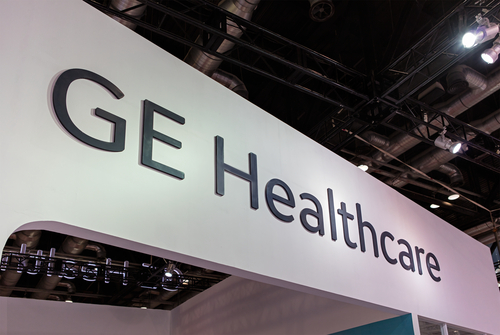



Get new exclusive access to healthcare business reports & breaking news




Last December, General Electric filed paperwork for an IPO of its healthcare unit, GE Healthcare. According to CNBC, the sources are “people familiar with the matter”.
Those same sources say GE is working with JPMorgan Chase on this initial public offering which is being prepared to take place in mid-2019, if all goes as planned. GE appears to have very significant financial support since Goldman Sachs, Bank of America, Citigroup and Morgan Stanley are also working with GE, according to Bloomberg News. For the time being, all have declined to comment. Even so, the market was really affected by the news, as evidenced by GE’s stock jumping more than 6 percent the day the news was made public. Bloomberg reported the IPO would be publicly filed in the spring.
The public offering is being made for General Electric’s health unit. This move will create one of the world’s largest health giants. A GE representative declined to comment on plans for the health unit.
“As we announced in June, as an independent global health care business, we will have greater flexibility to pursue future growth opportunities, react quickly to changes in the industry and invest in innovation,” GE said in an emailed statement, cited by Bloomberg.
GE’s healthcare unit public listing won’t be a first in the world of healthcare giants. Germany’s Siemens AG did something similar last March, when it sold shares of its Healthineers business. The initial public offering of Healthineers marked one of Germany’s biggest listings in recent years and was one of the largest European IPOs in 2018.
Shares are up 32 percent since the IPO, valuing Siemens Healthineers AG at about 37 billion euros ($42 billion).
A newly public GE healthcare company would rank among the world’s largest, Bloomberg Intelligence analyst Karen Ubelhart said in June. Based on the valuation of peer companies, the new entity could have an enterprise value, which includes debt, of $65 billion to $70 billion, Ubelhart said.
GE Healthcare, a dominant player in hospital and lab equipment, generated roughly $19 billion in revenue and $3.4 billion in profit in 2017, accounting for 15.8 percent of the conglomerate’s total sales, and 43.2 percent of its operating profit in 2017.
As a leading global medical technology and life sciences company, GE Healthcare provides a broad portfolio of products, solutions and services used in the diagnosis, treatment and monitoring of patients and in the development and manufacture of biopharmaceuticals.
The company helps improve outcomes for healthcare providers and for therapy innovators around the world. This means increased capacity, improved productivity and better patient outcomes.
GE Healthcare also aims to support its customers in the pursuit of precision health, employing integrated healthcare that is highly personalized to each patient’s needs and that reduces waste and inefficiency.
The company embraces and promotes a culture of respect, transparency, integrity and diversity.
By allowing its healthcare unit to file for this IPO, GE will retreat from one of its largest and most profitable markets. GE Healthcare, which earned $3.5 billion in 2017 on sales of $19 billion, is an expert in making high quality equipment such as MRI scanners and mobile diagnostic machines. About a quarter of GE Healthcare’s sales comes from the company’s fast-growing life-sciences division.
However, some of GE’s investors are arguing that the healthcare division does not fit well with GE’s primary business, which is making big industrial equipment, such as jet engines and gas turbines. Mostly, investors are worried about the healthcare unit’s big acquisitions. For instance, former Chief Executive Officer Jeffrey Immelt was widely criticized for the costly 2004 acquisition of British medical company Amersham Plc.
GE is moving away from the healthcare market, after it agreed, last April, to sell a trio of health-information businesses for $1.05 billion. The company aims to narrow its focus, boost cash and overcome one of the deepest slumps in its 126-year history.
Many companies in the industry chose this form of funding last year, for instance Principia Biopharma and Entasis Therapeutics, which we covered last August and September. Both companies have filed to go public in order to raise money to finance clinical trials of their novel experimental drugs. On August 30th Arvinas, a preclinical biotech that is developing protein therapies for metastatic cancers, filed with the SEC to raise up to $100 million in an initial public offering. Arvinas’ PROTAC platform degrades disease-causing proteins by using the cell’s natural and selective ubiquitin-proteasome system. Instead of inhibiting proteins, as do most small-molecule drugs, protein degradation uses the cells’ natural “trash removal” processes to completely eliminate the protein.